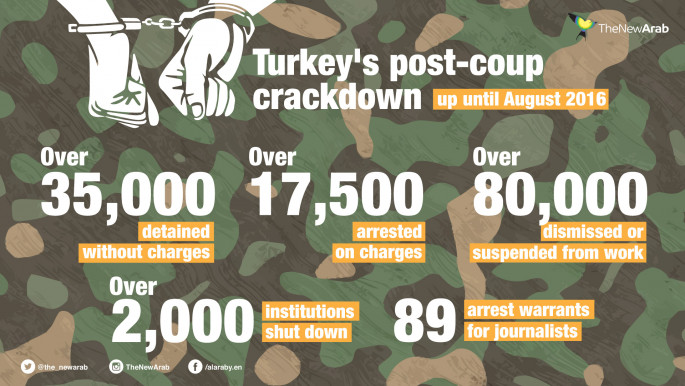UN warns torture 'widespread' in post-coup Turkey
Ill treatment appears to have been widespread immediately after the failed putsch, a UN expert said on Friday, following an investigation in the country.
Turkey is under a state of emergency, extended for 12 weeks in October, after a rogue military faction tried to remove President Recep Tayyip Erdogan from power in the summer coup attempt.
"Some recently passed legislation and statutory decrees created an environment conducive to torture," UN special rapporteur on torture Nils Melzer told reporters in Ankara.
Melzer's visit, the first by a UN torture expert to Turkey since 1998, comes a month after US-based watchdog Human Rights Watch [HRW] accused Turkish police of torturing detainees.
Since July, more than 100,000 people in the judiciary, military, media, civil service and education sector have been detained, dismissed or suspended.
In total, 37,000 people have been arrested and some have claimed torture, according to human rights groups.
Just over a week after the coup bid, Amnesty International said it had "credible evidence" of the abuse and torture of people detained in the sweeping arrests.
According to Melzer, torture appears to have been widespread in the immediate after 15 July, based on information given during his week-long visit.
"Testimonies received from inmates and their lawyers suggests that in the days and weeks following the failed coup torture and other forms of ill treatment were widespread."
He added that ill treatment seemed to have ceased for those prisoners arrested for reasons related to the attempted coup.
During his six-day visit, he went to places of detention in Ankara, Diyarbakir, Sanliurfa and Istanbul where conditions were "satisfactory", he said.
And the independent expert stressed that Turkey had the safeguards in place to prevent abuse and "thanks to the government's commitment, substantial progress has been made against torture since the 1990s".
The Turkish government has previously denied all forms of torture have taken place while insisting that it is dealing with an extraordinary situation within the rule of law.
 |



